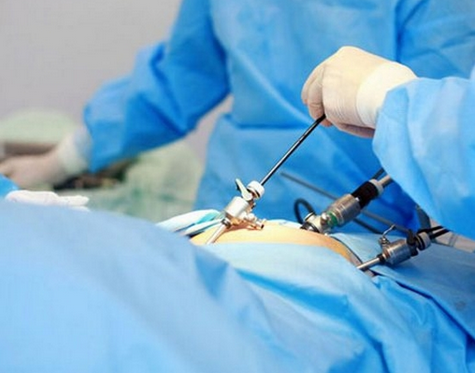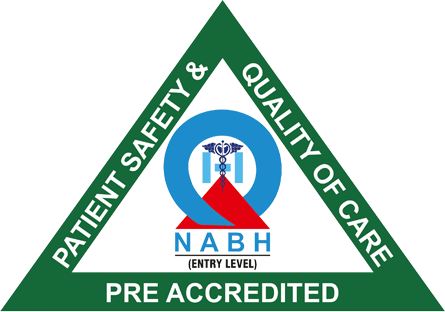What are the Benefits of Laparoscopic Surgery?

Laparoscopy is a minimally invasive procedure, also known as Minimally Invasive Surgery (MIS), that is done to check the inside of your stomach. It is a surgical technique in which small incisions are made on the stomach, and a narrow and thin tube with a camera attached to it is inserted inside to check the condition of the body. Surgeons use narrow tubes, such as trocars, to cut, sew, and manipulate tissues. Laparoscopic surgery is highly preferred these days over traditional open surgeries due to its invasive nature. Only 0.5 to 1.5 cm of cut is made to insert the tubes inside, which makes the surgery process less painful and leads to a faster recovery time. Unlike traditional open surgeries, which require 6-12 inches of cuts that make the surgery painful and lead to longer healing times.
Laparoscopy vs. Laparotomy
Before Laparoscopy, traditional open surgeries were done, which are also called laparotomy. In this large cut, about 6 to 12 inches was made through the abdominal wall. The surgeon then had enough opening to check the inside of the body. While Laparoscopy is keyhole surgery, it uses two or four small cuts, which are usually no more than half an inch, to insert the flexible tube inside the abdomen or pelvic area. A small video camera is attached to it to see the inside of the body. Laparoscopic surgery is preferred these days due to its minimal nature and less invasiveness, leading to fewer scars and faster recovery. However, in some complicated cases, emergency laparotomy might be more appropriate depending on several situations.
Advantages of Laparoscopic Surgery
There are many Advantages of Laparoscopic Surgery. Some of the following are as follows:
- Small incisions and faster healing: Laparoscopic surgery involves smaller incisions than traditional open surgery, which leads to quicker recovery time and a speedier healing procedure, which means you can return to normal activities sooner.
- No or less pain: Due to its minimal invasion, there is significantly less pain as compared to open surgery.
- Fewer scars: Minor cuts in laparoscopic surgery lead to fewer scars. You may have fewer internal scars.
- Inexpensive: As the healing time is faster in Laparoscopic surgery, it leads to shorter hospital stays, thus reducing the cost of hospital stays and lowering the overall expense.
- Low medications: Due to less pain, there will not be a need for many medications.
- Less Blood Loss: Laparoscopic Surgery results in less blood loss due to its minimally invasive nature, causing less trauma to the affected tissues. There will be less risk of wound infection.
Common Procedures Done Laparoscopically
The Common procedures done Laparoscopically are:
- Gallbladder removal
- Appendectomy
- Hernia repair
- yst, fibroid, stone, and polyp removals
- Ectopic pregnancy removal
- Endometriosis surgery
- Esophageal surgery
- Gallbladder removal
- Gastric bypass surgery
- Hernia repair surgery
- Kidney removal
- Prostate removal
- Rectal prolapse repair
- Rectum removal
- Removal of part of the bowel
- Removal of part of the liver
- Small tumour removals
- Spleen removal
- Stomach removal
- Testicle correction surgery
- Tubal ligation and reversal
- Urethral and vaginal reconstruction surgery
Recovery and Aftercare After a Laparoscopic Surgery
Typically, recovery from Laparoscopic surgery is fast and smooth. Here's what you can expect:
- Mild Bloating: You can expect mild soreness or bloating for a few days.
- You can get back to work after one to two weeks; however, it depends on the surgery and may vary from individual to individual.
- To promote healing, light walking should be done regularly.
- Always follow up and consult your surgeon before making any changes in your lifestyle, medications, and physical activity.
Who Shouldn't Have Laparoscopic Surgery?
Generally, laparoscopic surgery is less complicated due to its minimally invasive nature; however, there are a few things that should be kept in mind before opting for laparoscopic surgery. You should not have laparoscopic surgery if you have the following issues:
- If you have certain cardiopulmonary conditions.
- If you have an infection.
- If you are bleeding.
- If you have lots of body mass in the surgical area.
- If you have severe obesity.
- If you are in your late-stage pregnancy.
- If you are poorly tolerant of anesthesia.
- If you'd have surgery in the same area, the scars are still there.
Possible risks or complications of Laparoscopic Surgery
Although laparoscopic surgery is a very safe procedure, there can still be a few risks and complications that can occur during this surgery. Possible complications include:
- Bleeding from the incisions.
- Injury could occur to nearby blood vessels and organs.
- Problems related to anesthesia can occur, too.
- Swelling in the abdominal area.
- It is a very rare phenomenon, but blood clots can occur, which can enter your bloodstream, causing clotting in the legs, pelvis, or lungs. In more complicated cases, it can even lead to a heart attack or stroke, but it's very rare.
When should you call your surgeon after Laparoscopic Surgery?
If the following symptoms occur, you might need to see or call your doctor as soon as possible to avoid any risks and complications:
- Fever or chills after the surgery.
- Severe pain in the abdominal area.
- Pain in or around the incision site, causing redness or any sort of irritation or discomfort.
- If you feel any nausea or vomiting.
- Pain in any of your legs could be a symptom of blood clotting.
- If you are feeling short of breath, it could be a symptom of blood clotting in the lungs.
Conclusion: Benefits of Laparoscopic Surgery
Laparoscopic surgery offers an effective alternative to open surgeries, with less pain, scars and a faster healing process. Before opting for laparoscopic surgery, make sure to consult a professional to know if it's suitable for you. The surgeon will evaluate your condition and recommend an appropriate surgical approach. To get the best laparoscopic treatment in Dehradun, head to Baluni Hospital, the best Laparoscopic Surgery Hospital in Dehradun now and make an informed decision.







